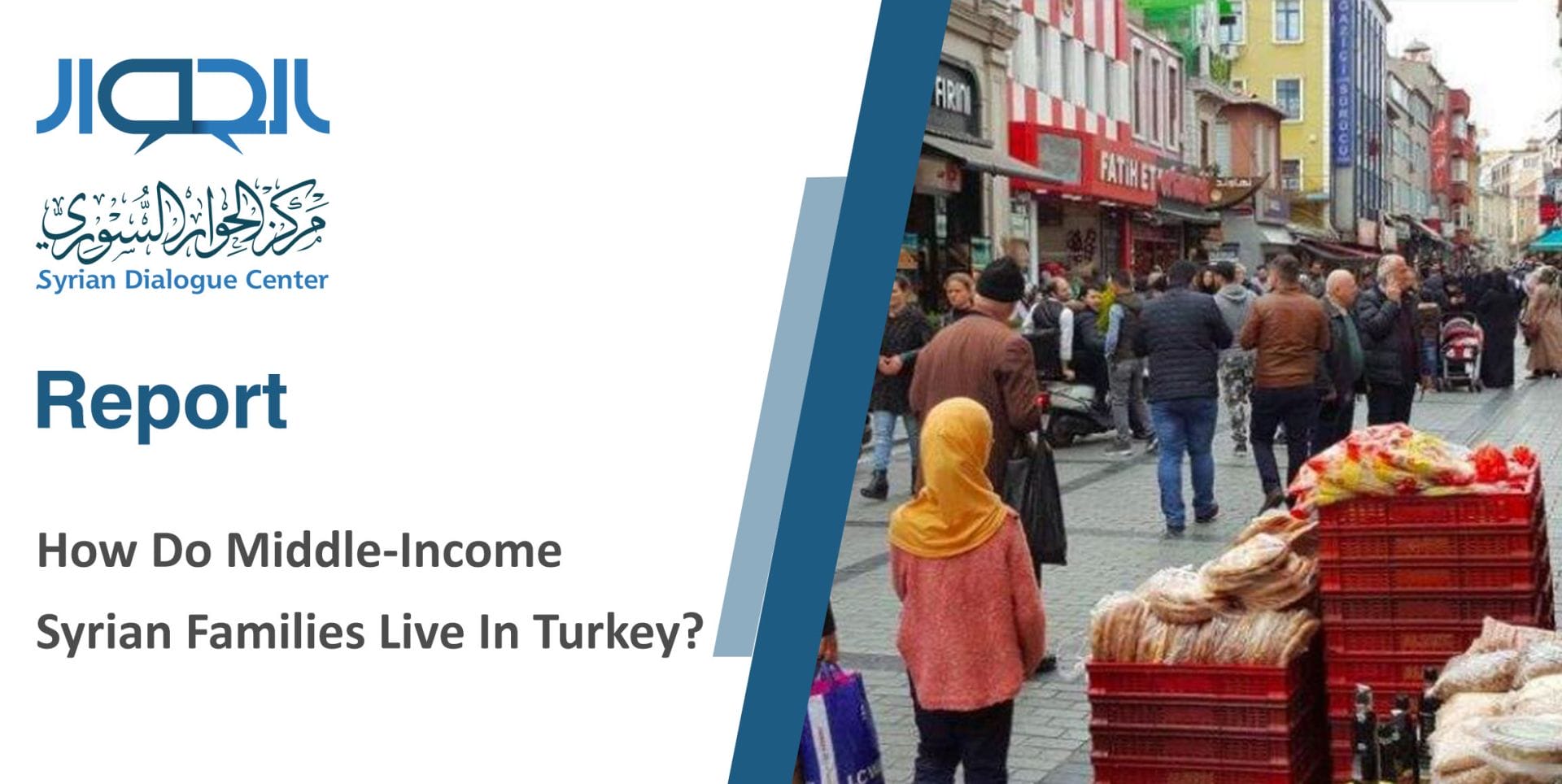
How Do Middle-Income Syrian Families Live In Turkey?
Executive Summary:
In recent years, Syrians in Turkey have been significantly impacted by the economic crisis exacerbated by the COVID-19 pandemic, the February 6, 2023 earthquake, and fluctuating economic policies. This report is based on a survey conducted among a large segment of Syrians to assess the changes in their economic conditions between 2021 and 2023, analyze the reasons behind these changes, and track the coping mechanisms they are employing to adapt to their new circumstances.
The survey sample consisted of approximately 68% males and 32% females. Of the respondents, 40% resided in Istanbul, 18% in Gaziantep, and 16% in Hatay. In terms of household size, 48% of the respondents had families with 5-7 members, 37% had fewer than 4 members, and 15% had more than 7 members. Income-wise, 36% of the sample reported earnings below the minimum wage, 19% earned between $400 and $600, 8% earned between $600 and $800, 6% earned between $800 and $1,000, and 13% earned more than $1,000.
The survey results highlighted differences in living standards, particularly between those residing in Istanbul and Gaziantep and those in other provinces. Salaries in Istanbul and Gaziantep were higher, as were living expenses, due to greater job opportunities and the presence of Syrian organizations offering high salaries. Additionally, the cost of living in larger cities is notably higher than in smaller towns.
When compared to a similar survey conducted by the Syrian Dialogue Center in 2021, the 2023 results showed a clear deterioration in the economic situation of Syrians. The percentage of individuals who considered themselves to be living comfortably or at a middle-class level had decreased, while the percentage of those who viewed themselves as living below average or in poverty had increased.
Regarding housing standards and rent levels, the survey responses clearly indicated a significant increase in rental prices, far exceeding the government’s imposed legal cap of a 25% rise between 2022 and mid-2024. This spike is due to factors such as the limited housing options available to Syrians, especially after several neighborhoods were closed off to foreign residents, and the heightened demand for rentals following the February 6, 2023 earthquake.
When analyzing living costs—such as bills, transportation, food, and basic necessities—it became evident that these expenses had risen significantly. This increase could not be attributed solely to fluctuations in the exchange rate between the Turkish lira and the U.S. dollar. Instead, prices increased even when calculated in dollar terms, with the impact being more evident in major cities like Istanbul.
Regarding familial needs, 47% of the target sample indicated that their household required over $1,000 per month to maintain a moderate standard of living that covers essential needs, rent, and bills. Meanwhile, 21% considered a suitable monthly income to be between $800 and $1,000. These figures suggest that the needs of most Syrian families for a dignified life are currently unmet, especially given that 55% of respondents earn less than $600 per month. A noticeable gap was noticed between the needs of families residing in Istanbul and those living in other provinces, as the cost of living in Istanbul is significantly higher.
A comparison between the responses of Syrian participants in this survey and Turkish statistics on household economic conditions revealed that the standard of living for Syrian families in Turkey is much lower than that of their Turkish counterparts. This even applies to Syrian families who classified themselves as middle class; only 6% of the surveyed families were able to meet what Turkish authorities define as the poverty line, while the rest lived below this threshold.
In conclusion, the report highlighted that Syrians have been significantly more affected by the economic crisis than their Turkish counterparts. This disparity is due to the modest wages they receive, their continuous need to work after losing their savings due to prolonged displacement, and the loss of their social support networks. Furthermore, the absence of financial or in-kind assistance, along with restrictions on Syrian presence in provinces where job opportunities are scarce, has worsened family welfare. Many Syrians are now unable to meet their basic needs, as their per capita spending is starkly lower compared to Turkish citizens.
To read the full report click here (Arabic)






